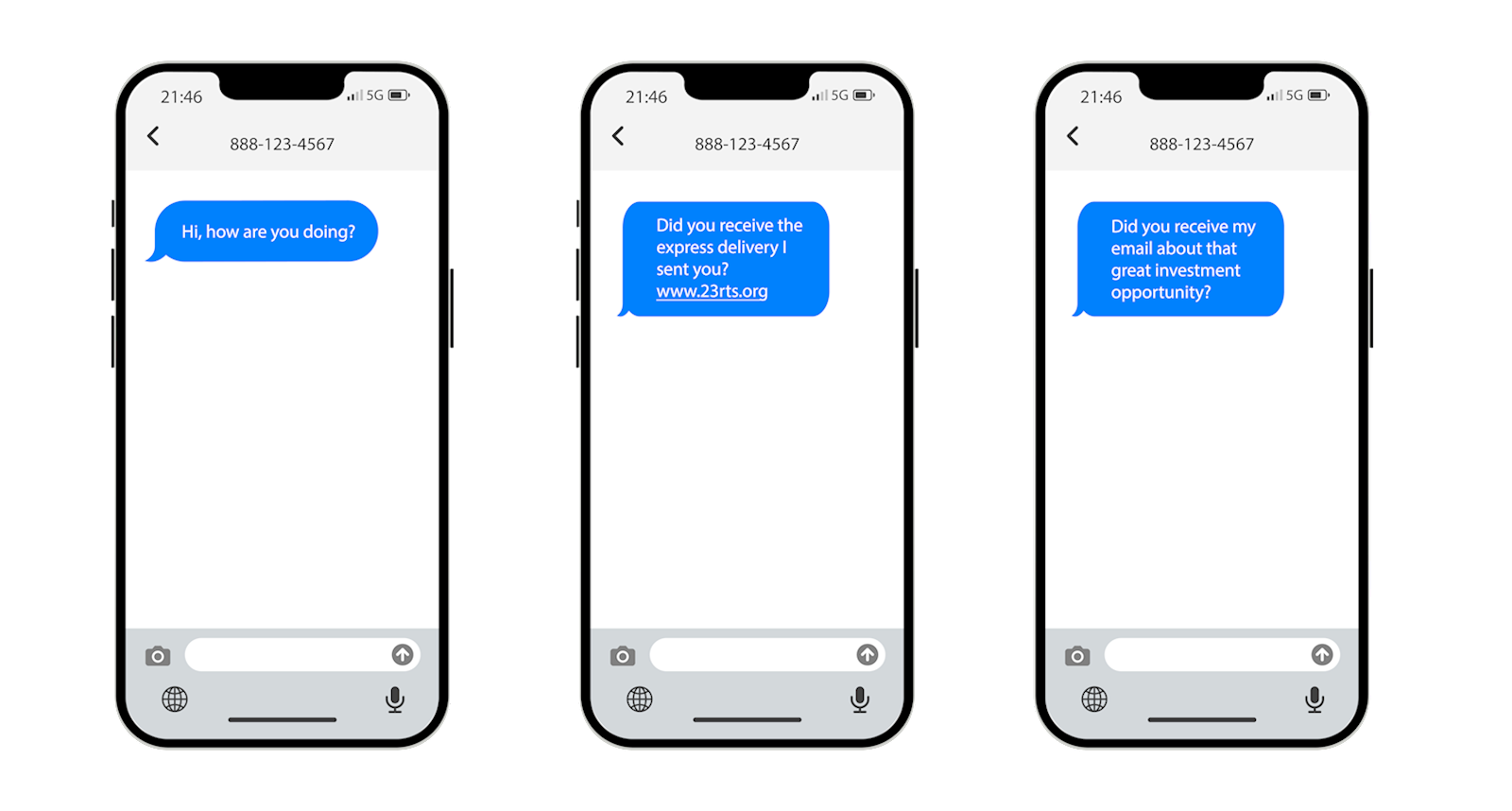Beware of "Pig Butchering" Scams
posted on Wednesday, July 31, 2024 in Fraud
A "pig butchering" scam, also known as "Sha Zhu Pan," is a sophisticated and elaborate scam where fraudsters build a relationship with their target over time before ultimately swindling them out of large sums of money.
Here’s how it typically works:
Initiation: The scam usually starts with an unsolicited message on social media, dating apps, or even random texts. The scammer may pose as a friendly or attractive individual seeking companionship or a connection.

Relationship Building: Over weeks or months, the scammer builds trust with the victim, engaging in frequent and personal conversations. They may share fake personal stories, pictures, and even talk on the phone or video chat to appear genuine.
Introduction to Investment: Once trust is established, the scammer introduces the victim to a "lucrative investment opportunity." This could be in cryptocurrency, stocks, or other investments. They may show fake success stories, screenshots of profits, and encourage the victim to invest a small amount to start.
Initial Success: To build further trust, the scammer often allows the victim to withdraw small profits initially, making the scheme appear legitimate.
Larger Investments: After the initial success, the scammer pressures the victim to invest larger sums, promising even higher returns.
The Scam Unfolds: Once the victim has invested a significant amount, the scammer either disappears or creates a crisis that requires even more money to resolve. Eventually, the victim realizes they have been scammed when they can no longer withdraw their funds or contact the scammer.
How to Protect Yourself
Be Skeptical of Unsolicited Messages: Be cautious if someone you don't know reaches out with an investment opportunity.
Research the Person and the Investment: Verify the person's identity and the legitimacy of the investment. Use trusted sources and look for reviews or warnings online.
Don't Share Personal Information: Avoid sharing sensitive information with people you’ve only met online.
Verify Before Investing: Consult with financial advisors or use established investment platforms.
Report Suspicious Activity: Contact relevant authorities or fraud protection services if you suspect you’ve been targeted.
If You’ve Been Scammed
Cease Communication: Stop all contact with the scammer immediately.
If you have fallen victim to a scam, please contact us at 866.360.5370 or stop by your local branch to speak with a C1st Representative. You can also report it to the FTC at ReportFraud.ftc.gov.
Learn more about the latest scams and ways to protect yourselves and your loved ones.